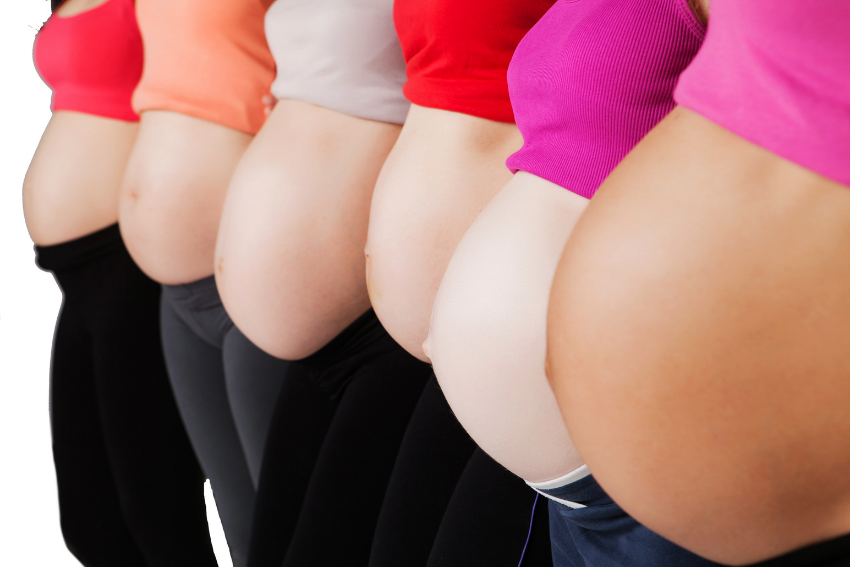Stages of Pregnancy
Pregnancy, a beautiful 40 week journey, is calculated from the date of a woman’s last menstrual period to the baby’s birth. Pregnancy is divided into three stages or trimesters. During this period, multiple changes take place in the fetus and mother. These trimester-wise changes will be discussed below.
First Trimester (1–12 weeks)
Changes in mother
The first trimester brings with it a myriad of hormonal and physical changes, which could be discomforting. However, as the pregnancy advances, this discomfort reduces. The following changes occur in the mother.
- Fatigue
- Stomach upset with vomiting (morning sickness)
- Swollen breasts, which are tender to touch
- Cravings or aversion to certain foods
- Headache
- Heartburn or acidity
- Mood swings
- Weight loss or gain
- Irregular bowel movements
Care to be taken for the mother
Eating smaller portions, spacing meals through the day, walking or exercising (as per your doctor’s advice), and making bedtime early are certain things that help one adjust to pregnancy. Moreover, avoid smoking and drinking during pregnancy, and have supplement folic acid and vitamin D, as advised by your doctor.
Changes in fetus
The fetus’ organs and body parts start to develop. The umbilical cord, which is attached to the placenta, transfers nutrients, oxygen, and hormones to the fetus. Moreover, the fetus’s heart starts developing, and a heartbeat can be detected by the sixth week of pregnancy on an ultrasound scan.
Second Trimester (13–28 weeks)
Usually, the second trimester is easier than the first. Most symptoms such as nausea and vomiting may reduce or vanish. Before the end of this trimester, you will also be able to experience your baby’s movement.
Changes in mother
- Body aches because of the extra weight of the fetus can result in abdomen, back, or thigh pain.
- Stretch marks because of expanding skin on abdomen, breast, thighs, or buttocks may be observed.
- The skin around your nipples may become darker.
- Dark patches may appear on the cheeks, nose, forehead, or upper lip. If this darkening is symmetrically seen on the face, then it is called as the pregnancy mask.
- Carpal tunnel syndrome, which is numbness and tingling of hands, may occur.
- An increase in itching may be experienced in the palms, abdomen, and soles of your feet.
- An increase in weight and swelling on your fingers, face, and ankles may be observed.
Care to be taken for the mother
The mother requires to be aware of any sudden changes in weight and swelling. This can indicate preeclampsia (a complication of pregnancy that results in high blood pressure with damage to the liver and kidneys). Be attentive to nausea, vomiting, loss of appetite, fatigue, and itching because it can be a sign of a liver problem. For stretch marks, lotions and moisturizers can be used; however, fewer studies have reported their effectiveness.
Changes in fetus
In the second trimester, the fetus continues to grow, and its organs continue to mature. The kidneys develop and start excreting urine. By now, the fetus will be able to hear sounds and may also start to kick. By the 20th week, the baby’s sex can be identified.
Third Trimester (29–40 weeks)
This is the last leg of your pregnancy journey. Once you give birth, most symptoms will vanish.
Changes in mother
- Difficulty in breathing
- Difficulty in sleeping
- Tenderness of breasts along with the leakage of colostrum (watery pre-milk)
- Heartburn or acidity
- Increase in the swelling of face, ankles, or fingers because of weight gain. Be attentive to excess swelling or sudden increase in weight gain, which indicates pre-eclampsia.
- Your belly button will start sticking out.
- The baby will move to your lower abdomen.
- You may experience contractions
Care to be taken for the mother
To avoid heartburn, eat bland foods and avoid late-night meals. Change sleeping positions to identify the most comfortable one.
Changes in fetus
By now, the baby’s development is almost complete. The baby gains weight and increases in size. Their lungs mature but will begin to work only after they are born.
Enjoy all the stages of your pregnancy because it is an adventurous time. Pregnancy is a miracle full of joy, make the most out of this time!
References
- Harvard Health Publishing. Family Planning and Pregnancy [Internet] [Updated Jan, 2021]. Available at: https://www.health.harvard.edu/topics/family-planning-and-pregnancy. Accessed on May 12, 2021.
- OASH. Stages of Pregnancy [Internet] [Updated Apr 18, 2019]. Available at: https://www.womenshealth.gov/pregnancy/youre-pregnant-now-what/stages-pregnancy. Accessed on May 12, 2021.
- BUPA. Stages of Pregnancy [Internet] [Updated Dec, 2018]. Available at: https://www.bupa.co.uk/health-information/pregnancy/stages-of-pregnancy. Accessed on May 12, 2021.

